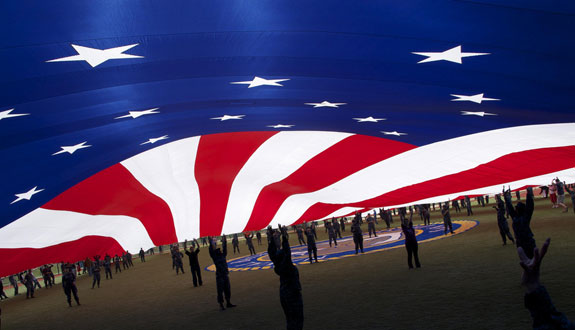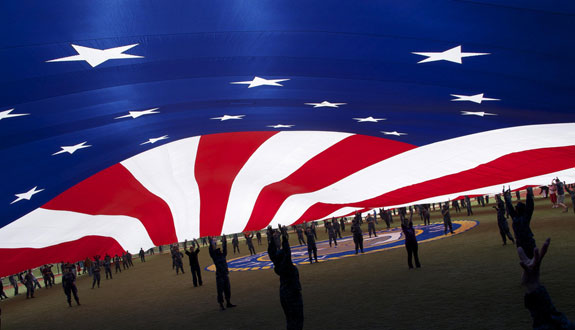
Happy Veterans Day to those of you who have spent time in the military. We here at Blueprint LSAT Prep cannot thank you enough for your service and dedication to keeping the rest of us safe. We have nothing but respect for you and the work you do.
It’s a small thing we can do here on the LSAT blog, but we’d like to take this opportunity to provide advice to those servicemen and women who will pursue a career in the legal field after their time in the military.
So let’s clear up some misconceptions about which I’ve been asked:
1) “My service might say something about my personal politics, so I should downplay that.”
I hear this a lot from conservative members of the military, worried that the liberal-dominated world of law school will look down on their views, or their service.
Nothing could be further from the truth.
First, most liberals view members of the military with respect. Second, law professors want interesting people in their classroom, and not just those who agree with them. Which brings us to number three – most law schools have a dearth of conservatives, so being on the right of the political spectrum might actual add to your value to the class.
2) “I can’t think of anything but military experience to include in my résumé/write my personal statement about. That’s a problem, right?”
Wrong.
Think about it from the other angle – most law school applicants only have academic experience (i.e. being a student) to include in their résumé, yet most don’t view that as a problem.
Outside of a high GPA and LSAT, military experience is the best thing to have in your background during law school applications. The characteristics that allow someone to function in the military are invaluable in the study and practice of law. You don’t want to shy away from it in your law school application. You want to highlight it.
3) “I want to write my personal statement about something other than military service, since doing that will show a lack of depth.”
It won’t show a lack of depth – it will show focus.
By centering your law school application around your military career, you’ll be doing two things. First, you’ll be highlighting what is, most likely, the strongest “soft” (i.e. non-number) factor you have. Second, you’ll be creating an application package that reinforces itself, since your résumé will focus on your experiences in the military and you most likely have a letter of recommendation from a CO.
Additionally, I’ve had the pleasure of working on many law school personal statements for members of the military. Every single story they have to tell is more interesting than any story I have to tell. Believe me, after an admissions officer reads the 50th personal statement about Spring Break with Habitat for Humanity, your personal statement will be a welcome change of pace.




